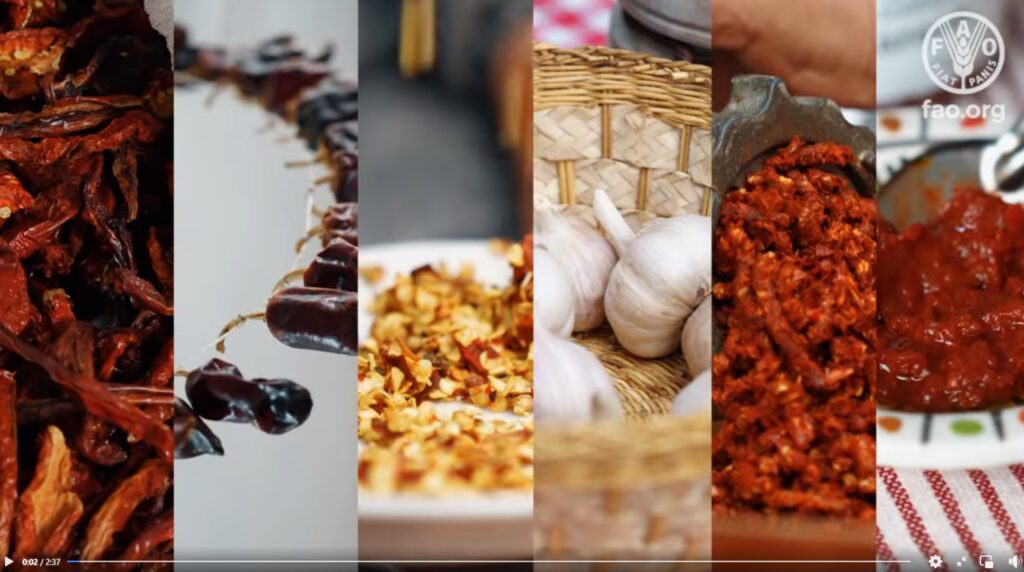Under the supervision of the Ministry of Industry, Mines and Energy and in collaboration with the “OCOP: One Country One Priority Product” project funded by the Food and Agriculture Organization of the United Nations (FAO), a study was conducted on the harissa value chain.
The “OCOP” project, launched in 2021, aims to promote special agricultural products, with a focus on creating sustainable, inclusive and resilient production systems. In its initial phase, it involved several MENA (Middle East and North Africa) countries, namely Tunisia, Jordan, Saudi Arabia, Lebanon, Morocco, Syria and Yemen.
The harissa value chain was chosen because of its key position in the fruit and vegetable processing sector. Although it faces various structural and operational challenges, this sector is an essential part of the Tunisian economy, both economically and culturally, and still requires improvements to boost its competitiveness.
The study began with field visits to production areas and processing units, enabling to gather relevant data and identify areas for improvement. Meetings with key players in the sector, from the public, private and associative sectors, were organized to analyze the sector’s challenges and opportunities. Workshops were also held to discuss the social and environmental sustainability of the value chain, as well as the results and recommendations of the study.
As part of this project, a video was produced to promote and present the product. The video highlights the benefits of harissa, as well as its position in the Tunisian culture. This collaborative approach has enabled us to identify concrete ways of improving the competitiveness and sustainability of the harissa industry, while ensuring that social and environmental concerns are better integrated into the development of this strategic sector.

click on the link below to watch video
Tags: GICA






